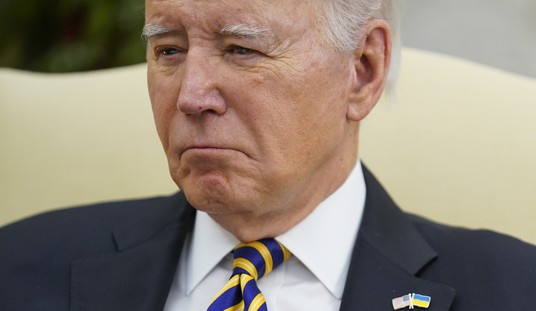President Obama didn’t watch Israeli Prime Minister Benjamin Netanyahu’s speech, and after reading a transcript of the address insisted there was “nothing new” there.
But an evidently irked commander in chief took more than 10 minutes to relay that thought in the Oval Office today.
The press pool was allowed in for a photo op with new Defense Secretary Ash Carter, who just returned from a trip to Afghanistan.
Netanyahu’s speech began at 11 a.m., and this morning the White House added an 11:30 a.m. videoconference call with British Prime Minister David Cameron, French President Francois Hollande, German Chancellor Angela Merkel, Italian Prime Minister Matteo Renzi, and European Council President Donald Tusk “to discuss Ukraine and global security issues.”
Obama told reporters that there was a lots of context in Netanyahu’s speech on which they agree, including “that Iran has been a dangerous regime and continues to engage in activities that are contrary to the interest of the United States, to Israel, and to the region.”
On the “core issue” of preventing Iran from getting a nuclear weapon, the president said, “the prime minister didn’t offer any viable alternatives.”
“Now, the deal that we are trying to negotiate that is not yet completed would cut off the different pathways for Iran to advance its nuclear capabilities. It would roll back some elements of its program. It would ensure that it did not have what we call a breakout capacity that was shorter than a year’s time. And it would subject Iran to the most vigorous inspections and verifications regimes that have ever been put in place,” Obama said.
“The alternative that the prime minister offers is no deal, in which case Iran will immediately begin once again pursuing its nuclear program, accelerate its nuclear program, without us having any insight into what they’re doing. And without constraint.”
Actually, Netanyahu called for a better deal: “My friends, for over a year, we’ve been told that no deal is better than a bad deal. Well, this is a bad deal. It’s a very bad deal. We’re better off without it,” the prime minister said. “Now we’re being told that the only alternative to this bad deal is war. That’s just not true. The alternative to this bad deal is a much better deal. A better deal that doesn’t leave Iran with a vast nuclear infrastructure and such a short break-out time. A better deal that keeps the restrictions on Iran’s nuclear program in place until Iran’s aggression ends. A better deal that won’t give Iran an easy path to the bomb. A better deal that Israel and its neighbors may not like, but with which we could live, literally.”
Obama acknowledged “it may be that Iran cannot say yes to a good deal,” as negotiations continue with the Islamic State.
“If we’re successful in negotiating, then, in fact, this will be the best deal possible to prevent Iran from obtaining a nuclear weapon. Nothing else comes close. Sanctions won’t do it. Even military action would not be as successful as the deal that we have put forward,” he maintained.
“And I think it is very important not to be distracted by the nature of the Iranian regimes’ ambitions when it comes to territory or terrorism.”
Even though the president objects to bipartisan legislation that would allow Congress to review and sign off on any nuclear agreement, Obama said “let’s wait until there’s absolutely a deal on the table that Iran has agreed to, at which point everyone can evaluate it.”
“We don’t have to speculate. And what I can guarantee is that if it’s a deal I’ve signed off on, I will be able to prove that it is the best way for us to prevent Iran from getting a nuclear weapon,” he said. “And for us to pass up on that potential opportunity would be a grave mistake. It’s not one that I intend to make, and I will take that case to every member of Congress once we actually have a deal.”
Obama stressed the administration line that “it is very important for us not to politicize the relationship between Israel and the United States.”
“It’s very important for all of us Americans to realize that we have a system of government in which foreign policy runs through the executive branch and the president, not through other channels,” he added.
“…So what I’m focused on right now is solving this problem. I’m not focused on the politics of it. I’m not focused on the theater of it. And my strong suggestion would be that members of Congress as they evaluate it stay similarly focused.”








Join the conversation as a VIP Member